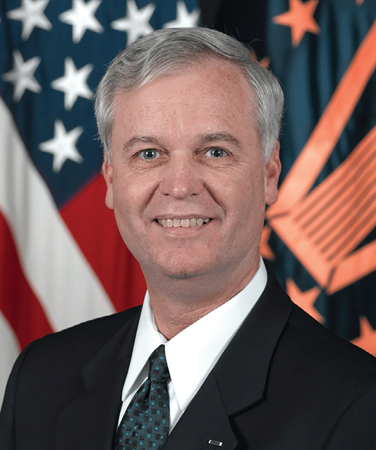‘I Try to See Every Volunteer That We Have’
 Nonprofits need leaders, too, but nonprofit leadership styles vary from traditional corporate settings. Just ask Gordon Sumner, PhD, President and CEO of Veterans Moving Forward, a 501(c)(3) nonprofit that provides trained service and emotional support dogs to veterans.
Nonprofits need leaders, too, but nonprofit leadership styles vary from traditional corporate settings. Just ask Gordon Sumner, PhD, President and CEO of Veterans Moving Forward, a 501(c)(3) nonprofit that provides trained service and emotional support dogs to veterans.
“It’s distinctly different. The bulk of the support that you get in a nonprofit organization comes from volunteers,” says Sumner, a retired US Army colonel-select who earned an Executive MBA at Harbert in 2006. “You have to understand that unlike being in the military where you’re the commander and you can tell your troops what to do—or you’re the owner of a company and you can tell your employees what to do—you can’t always do that as leader of a nonprofit. You can’t go to your volunteers and say, ‘Do this or else,” or they will take the ‘or else’ course of action 100% of the time.”
Nearly 50 volunteers at VMF (www.vetsfwd.org), located in Dulles, Virginia, assist with puppy raising/training, dog walking, facility cleaning, light maintenance, office management support, canine operations, and fundraising.
Sumner subscribes to the servant leadership style—one that inspires others. “I try to see every volunteer that we have,” he says. “When we meet, I’m not asking for donations, I just want to say ‘thank you’ for what you’re doing because you could be doing other things, but you have chosen to spend your time with us and devote it to this important organization.”
Sumner wants to make sure the operation runs smoothly, and its stakeholders receive the best service possible. He’s honored to solicit ideas from volunteers.
“I want some bottom-up suggestions,” he says, “From the people that are actually out there getting their hands dirty. Some things I might not be aware of or I don’t see on a daily basis because I’m trying to think more strategically versus tactically. I’m trying to figure out where we need to be in five years and how we can get there, but at the same time I have to keep my hands on it, so I ask for input. I ask people, ‘How’s it going?’ and I really want to know.”
As a decorated combat veteran—earning the Bronze Star and the Purple Heart—Sumner understands what many veterans have endured. VMF eases the struggle through therapy dogs, which are provided 24 hours per day at no charge.
“It’s a documented fact what canine therapy will do for individuals, especially veterans dealing with mental or physical challenges,” says Sumner, who once worked at the Pentagon and was awarded the Secretary of Defense Medal for Exceptional Public Service. “For example, PTSD. We know it. We’ve seen it.
“Over and over again, we have placed a dog (often a Labrador retriever) with a veteran and they tell people how the dog has turned their lives around. We have testimonials on how they have their lives back. The impact our dogs have made on veterans, their spouses and children—to have Mom or Dad back the way they remember them—is phenomenal. We’re making a difference every day.”
Sumner and his daughter, Ande, graduated from Auburn on the same day—May 11, 2006—in the year Auburn celebrated its 150th anniversary. Gordon received his MBA during afternoon commencement, while Ande received a degree in zoology that morning.
“Ande’s proud to tell people that she graduated first,” Sumner quips.
